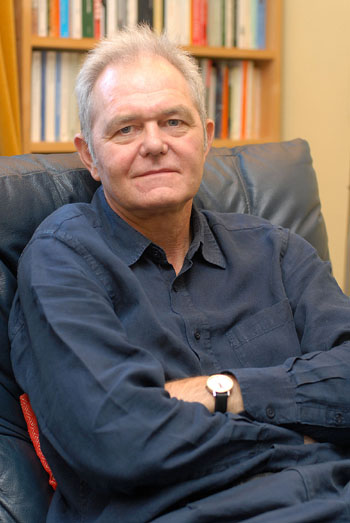Lancaster scientists contribute to new UK centre for Zoonosis Research

Lancaster University research is set to play a key role in a new centre dedicated to understanding diseases such as SARS and avian flu.
Lancaster scientists from the departments of Maths and Statistics and Medicine will contribute to the UK’s National Centre for Zoonosis Research – a new research centre dedicated to the study of animal-borne human diseases which opened this week at the University of Liverpool.
Zoonoses are diseases that originate in animals but can jump species and infect humans. The new centre is located at Liverpool University’s veterinary campus because of the importance of understanding these diseases in animals as well as people.
The Zoonosis Centre is funded by the Northwest Regional Development Agency (NWDA) and is a collaboration involving the University of Lancaster, the Health Protection Agency (HPA) and the Veterinary Laboratories Agency (VLA).
Lancaster University researchers who will collaborate with the centre are:
Professor Paul Fearnhead, Maths and Statistics.
Dr Chris Sherlock, Maths and Statistics.
Professor Peter Diggle, Department of Medicine.
Professor Malcolm Bennett, Veterinary Pathologist and Co-Director of the centre, said: “Diseases such as SARS and avian flu are examples of new and emerging zoonotic diseases that hit the headlines, but around two thirds of all human infections are transmitted from animals, and some of these can be very serious. Rabies, for example, still kills more than 50,000 people every year, mainly in developing countries, while closer to home, most cases of food poisoning are also caused by zoonoses.”
While many people associate zoonoses with wild or farm animals, pets can also be sources of important human infections, sometimes even with fatal consequences. Equally, however, human beings can sometimes be the source of animal infections.
Dr Chris Parry, Medical Microbiologist and Co-Director of the centre said: “Antibiotic resistance is a problem in many zoonotic bacteria, and this complicates the treatment of patients. The Centre brings together scientists with different backgrounds in order to tackle not just theoretical issues but very practical problems in disease control and management.”
Dr George Baxter, NWDA Director of Science and Innovation, said: “The NWDA is committed to developing and nurturing an internationally competitive knowledge base in the Northwest, which is why we invested £1.68 million into the Centre for Zoonosis Research through the Northwest Science Fund.
“Through the expertise of the University of Liverpool, this new centre will help ensure that the region remains a leader in scientific innovation and significantly advance the Northwest’s research base.”
The Centre was officially opened at Liverpool University’s Leahurst campus at Neston, Wirral on Wednesday, 12 December at 12.30pm.